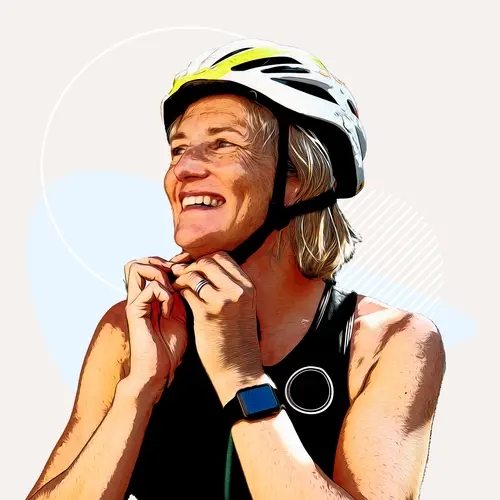Finding Support When You Have MS

Hide Video Transcript
Video Transcript
EVAN MCCARROLL JOHNSON: Over the years, I've been able to diagnose many people with a new onset of multiple sclerosis. And usually, this is a very frightening thing for the patients. The name itself usually carries a stigma and is a hard one to hear for them. And it's not something they're as familiar with. We all kind of know what blood pressure is and hypertension. But multiple sclerosis is something that's not as well known. And there's a lot of fear related to it, wanting to know what that might represent moving forward for their lives. Would they be able to continue doing the things that they were expecting to do in their lives? Or would this disrupt it in a major way?
So when we see folks, we usually try to encourage them early on to join things like support groups, other multiple sclerosis groups that can be either in-person or online. And because that is a great way of sharing information, both receiving it and giving it and seeing what others go through. Multiple sclerosis can be very different for different individuals. Also, trading strategies, coping mechanisms, different medications that are out there, and just as importantly, the non-medication methods for dealing with the disease.
Those are all really helpful for folks and just gives a sense of peace and calmness knowing they're not alone. There are other folks out there and that they're living with this disease, not dying from it, which is a key factor. So and it's not just the patient, but the caregivers as well because, for them, they can also be very worried about would their loved one be able to kind of continue, or are they going to have to stop working, turn their life around? So, again, they also are meeting folks in a similar situation, understanding the things that were out there and available for them and can deal with this in a more healthy, positive way.
In recent years, we've become more of a closed door society for various reasons. And so, sometimes, folks feel that the community isn't what it used to be. But it's important to understand that community always extends more beyond just the people in the household, the people in the support groups, but it can still include your neighbors, the people that are online. It can be your church, synagogue, mosque, the other figures out there. And, usually, there's more people there out and willing to help and be a part of our lives than we realize. And we just need to reach out and bring them in.
So when we see folks, we usually try to encourage them early on to join things like support groups, other multiple sclerosis groups that can be either in-person or online. And because that is a great way of sharing information, both receiving it and giving it and seeing what others go through. Multiple sclerosis can be very different for different individuals. Also, trading strategies, coping mechanisms, different medications that are out there, and just as importantly, the non-medication methods for dealing with the disease.
Those are all really helpful for folks and just gives a sense of peace and calmness knowing they're not alone. There are other folks out there and that they're living with this disease, not dying from it, which is a key factor. So and it's not just the patient, but the caregivers as well because, for them, they can also be very worried about would their loved one be able to kind of continue, or are they going to have to stop working, turn their life around? So, again, they also are meeting folks in a similar situation, understanding the things that were out there and available for them and can deal with this in a more healthy, positive way.
In recent years, we've become more of a closed door society for various reasons. And so, sometimes, folks feel that the community isn't what it used to be. But it's important to understand that community always extends more beyond just the people in the household, the people in the support groups, but it can still include your neighbors, the people that are online. It can be your church, synagogue, mosque, the other figures out there. And, usually, there's more people there out and willing to help and be a part of our lives than we realize. And we just need to reach out and bring them in.
